Introduction: The Evolution of Culinary Arts
Cooking is at once child's play and adult joy. And cooking done with care is an act of love.—Craig Claiborne. These words have always echoed the magical bond between cooking and creativity. But what if the future of culinary genius isn’t just nestled in the hearts of seasoned chefs, but breeds in the minds of machines instead? In an increasingly digital age, technology seems to be asking itself: Can algorithms outperform the world's celebrated chefs in crafting culinary masterpieces? As wild as it may sound, BBC reports suggest that AI's foray into the kitchen could redefine gastronomy, shaking its very foundations by not just mimicking but potentially innovating beyond human imagination.
AI isn't just about automating tasteless cooking; it's about breaking boundaries. As New York Times food columnist Mark Bittman once pondered, “if AI can jazz up traffic on the roads, why not spice up the salads on our plates?” The kitchen is no longer limited by human hands—or even its creativity, which opens an exciting and somewhat unnerving frontier. With Ferran Adrià and his trailblazing campaigns in molecular gastronomy, we need to consider: Could culinary prowess be distilled into coding brilliance?
We’re embarking on a tantalizing journey—one where chefs may trade their well-loved spatulas for state-of-the-art algorithms. Will they find harmony or chaos in these new digital sous-chefs? If Shakespeare had penned a play about today's food scene, it might've questioned: To cook, or to boot up? Read on to uncover how AI challenges culinary conventions and sprinkles in unexpected twists into the rich traditions of Michelin-starred mastery.
The Current Landscape of Culinary Arts and AI Integration
As we stand at the brink of a digital revolution in dining rooms, it’s worth taking a stroll down memory lane to see where it all began. The marriage of AI and the kitchen hasn't been sudden; it's more like a slow-burning romance.
Historical Context
Back in the early days of computing—when a "byte" might have been confused with a type of sandwich—visionaries like I.J. Good foresaw a future where machines would exceed human capabilities. Yet, it wasn't until recent years that these inklings began sautéing into reality. The foundations were laid—bit by bit, spoon by spoon—building towards robotic arms gracefully flipping pancakes in bustling restaurant kitchens.
Current Technologies
Enter the present: Smart ovens communicate with your smartphone, robotic chefs dazzle with precision cutting, and recipe-generating algorithms spin culinary stories you'd swear had a human touch. Brands like Moley Robotics are at the helm, delivering AI-powered kitchen maestros who never forget a garnish—or repeat an epicurean mistake. It's a feast of innovation in the land of culinary tech.
Impact on Professionals
For chefs—keepers of kitchen magic—this AI whirlwind stirs a cauldron of emotions. On one hand, they fear the splicing of creativity into bytes and codes. On the other, they see a vibrant palette of tools, expanding the boundaries of what's physically and imaginatively possible. The philosophically curious Michael Pollan might quip: If you give a chef AI, will they bake a revolution? Only time—and taste tests—will tell what ingredients this tech marriage will ultimately blend.
Unique Recipe Creation: Can AI Surpass Human Imagination?
Imagine this: a digital maestro wielding a whisk and spatula, poised to revolutionize your dinner table. In a world where AI flirts with creativity, the culinary arena becomes its ripest playground. Can a machine imagine, compose, and deliver a plate that rivals the inventiveness of human chefs? It's time to dive in and find out.
Mechanisms of Recipe Generation
AI is a bit like your grandma with unlimited cookbooks and a knack for experimenting (without the apron). It uses complex algorithms, like machine learning, to analyze existing dishes, ingredients, and flavor profiles. These algorithms munch on massive datasets, digesting and recombining them in innovative ways. Imagine a whirlwind mix of statistics and magic. The endgame? A bolder, better recipe each time you hit "cook".
Case Studies of Successful AI-Created Dishes
Food's future is already simmering today. Consider Impossible Foods, whose plant-based burger patty was co-crafted by AI to mimic the juicy flavor of beef. An algorithm named IBM Watson has been part of culinary competitions, drumming up asparagus and coconut-flavored ice cream. Strange? Maybe. But oh-so-tantalizing! Critiques have ranged from puzzled smiles to outright applause, as these AI-driven concepts woo modern taste buds.
Comparison with Human-Cooked Meals
It's the clash of titans: carbon-based chefs versus their silicon counterparts. Blind taste tests often pit human intuition against AI's playful indifference toward tradition. Surprisingly, AI's flair for the unexpected can sometimes leave diners with a more memorable tasting experience. Yet, the comforting embrace of Grandma's meatloaf remains a cherished staple. Ultimately, it’s not about machines replacing chefs; it’s about offering a new kind of magic to the palate.
Flavor Profiling: How AI Understands Taste
Taste can be as mysterious as a teenager's music playlist, mixing the good, the surprising, and the occasionally unpalatable. But for AI, it's just another puzzle to solve. Like Sherlock Holmes with a spatula, AI dives into the depths of food chemistry to crack the case of flavor.
The Science of Flavor
Flavor isn't just taste. It's a symphony of senses, from aroma to mouthfeel. Scientists have long known its mysteries, cataloging them like ancient texts. By understanding molecules and their interactions, we decode tastes that make your tongue dance. AI, our culinary detective, taps into these secrets, reducing them to understandable data points—an orchestration of molecules.
AI Technologies for Flavor Analysis
Enter the digital era—where machines learn to taste. Tools like Molecular Gastronomy's databases are the backdrop, while AI assesses flavor interactions as spectrometers scan foods in lab-coated precision. Machine learning allows predictions for pairings that could outshine a Broadway debut's opening night. Instead of one note, AI creates a culinary chorus.
Examples of Successful Flavor Pairing Generated by AI
How about a refreshing chocolate and garlic combo? Yes, it's a real hit in algorithm-generated menus! AI breaks norms, proposing marriages between foods previously not spoken of in polite company. The result? Diners who find new love in every bite. AI’s analytical might can turn any skeptic into an adventurer, consistently pulling rabbits from proverbial hats—and taste buds aren’t complaining!
Redefining Cuisine: AI and Global Culinary Traditions
Imagine walking through a bustling bazaar in Marrakech, the air thick with the aroma of cumin and coriander, when suddenly a robot rolls up, offering an AI-generated tagine. It's an unexpected vision of the future, isn't it? As AI makes its way into kitchens around the world, it brings with it the potential to blend tradition with innovation in delightful and delicious ways.
AI’s Role in Cultural Adaptation
On a trip from Tokyo to Tuscany, one might wonder—can AI truly appreciate the age-old processes passed down through generations? Current studies show that AI can indeed learn from vast databases of cultural recipes, extracting patterns and principles from centuries of culinary history. This doesn't mean the recipes of our ancestors are forgotten. Instead, AI becomes a student—a diligent disciple of the world's oldest culinary masters. The outcome is fascinating. Imagine a neural network that not only respects the art of sushi preparation but can cleverly suggest a tomato-based version for an Italian audience.
Global Challenges and Opportunities
Globally, chefs face the challenge of preserving authenticity while exploring creative boundaries. AI's entrance into this dynamic arena could be a game-changer. By analyzing diverse culinary techniques, AI can offer solutions that were previously unimaginable. An Indian fusion dish with a French twist or even a Mexican mole interpreted through Thai spices—culinary dreams waiting to be realized!
Yet, there's a flip side—potential homogenization of taste. By over-relying on AI, might we inadvertently erase the very diversity we cherish? Chefs must balance, making sure AI serves as an aide, not a thief of tradition.
Collaborating with Chefs Globally
Innovation thrives on collaboration, and chefs are at the heart of this culinary renaissance. Across continents, AI developers and chefs unite to explore uncharted culinary waters. By combining machine efficiency with human creativity and decades of kitchen experience, they create a fusion of art and science. Imagine an open forum between French pastry chefs and AI programmers, culminating in a croissant that caters to dietary needs without losing its fluffy, buttery essence. The experimental kitchen becomes a space for experimentation without borders, a place where cultural barriers dissolve in the heat of creation.
Ethical Considerations of AI in Culinary Arts
As AI quietly enters kitchens, a cacophony of ethical questions rises, echoing through culinary halls worldwide. Can we sustain our rich culinary heritage without sacrificing opportunity, creativity, and safety?
Job Displacement in the Culinary Sector
As we embrace the future, the unyielding grip of change poses a question: what of human jobs? AI automation might lead to job displacement, threatening livelihoods in both the restaurant industry and communal kitchens. Viewed through an economic lens, this shift demands strategic planning and educational reformation to temper workforce disruption. Transitioning chefs into tech-savvy roles could pave the way for new opportunities aligning tradition with technological evolution.
Ownership and Creativity
Creative ownership is another tantalizing issue. If an AI develops a recipe that sweeps a nation, who owns it? The programmer? The chef collaborating? The debate over intellectual property rights in culinary innovation mirrors age-old questions in art and literature. Consider the implications of machine-generated recipes winning culinary awards. The contributions of human touch in mentorship and refinement remain crucial, highlighting that collaborative masterpieces triumph over isolated creation.
Ensuring Quality and Safety
Palatability must be married to safety. AI-driven kitchens underscore the importance of rigorous quality and safety standards. AI's analytical precision offers unprecedented control over health checks. Sprinkling AI's capabilities with human intuition ensures not just culinary delight but safety as well.
The collaborative wisdom of chefs and developers creates a recipe for safety. Diligence in crafting algorithms shields against risks, more critical now given evolving AI legality frameworks. A paramount partnership where chef intuition melds with code to uphold safety reflects culinary conscientiousness.
By dissecting these ethical puzzles, we glimpse a future where AI, tradition and creativity unite harmoniously, enhancing culinary horizons.
AI Solutions: A Vision for the Future of Culinary Arts
If I were an AI, embarking on a quest to transform the culinary arts, I would take a multi-faceted approach. This journey starts with the collection of an extensive dataset comprising recipes from global cuisines, each rich with unique flavors and cooking techniques. By delving deep into this wealth of information, AI can become not just a tool but a collaborator, understanding the emotional connections that food invokes in different cultures.
To achieve this, I would construct an intricate model, utilizing deep learning to comprehend not only the mechanics of cooking but also the intricate dance of flavors that make a dish truly special. Simulating cooking in real-time with feedback loops would enable AI to refine recipes rapidly, blending art and science fluidly. The final touch would be partnerships with talented chefs and food scientist professionals, ensuring AI respects culinary traditions while pushing creative boundaries.
The roadmap for such an initiative, reflective of iconic projects like the Manhattan Project, would look something like this:
Day 1:
Form a diverse project team consisting of AI developers, chefs, nutritionists, and data scientists. This eclectic group should embody a mix of technology and culinary expertise!
Day 2:
Begin the meticulous task of identifying and collating data sources for recipes, techniques, flavor profiles, and historical context from databases such as Food Network and AllRecipes.
Day 3:
Kickstart the initial frameworks for the AI’s recipe generation models, ensuring flexibility and adaptability.
Week 1:
Hold thoughtful discussions with chefs to grasp culinary nuances, secrets, and the stories behind favorite dishes. Collaborations with establishments such as The Culinary Institute of America could provide invaluable insights.
Week 2:
Initiate training the AI on the collected datasets with a focus on algorithms for flavor pairing, drawing inspiration from successful projects like IBM’s Watson.
Week 3:
Start implementing iterations of AI-generated recipes, using feedback from chefs and trained tasters to refine the outcomes.
Month 1:
Deep dive into user experience — gather valuable feedback, adjusting the AI’s processes based on initial results, moving towards a prototype cooking assistant.
Month 2:
Broaden the field by including diverse global cuisines and testing in professional settings, perhaps partnering with renowned chefs from establishments like Michelin.
Month 3:
Continue the exciting task of generating unique recipes, refining algorithms based on user interactions and flavor preference feedback.
Year 1:
Launch a pilot program in select restaurants to showcase AI-generated dishes, ensuring that human chefs are pivotal partners in this journey.
Year 1.5:
Amass extensive user and restaurant feedback, using this wealth of information to iterate and improve AI-generated offerings continually.
Year 2:
Finalize a robust model, aiming for commercialization of AI culinary assistants that empower home cooks everywhere, harnessing creativity and nostalgia in every dish.
Conclusion: The Culinary Symphony of Machines and Humans
As we stand on the brink of a culinary revolution powered by artificial intelligence, it’s a thrilling time to be a food lover. Machines may never fully capture the heart and soul that human chefs infuse into their creations, but they have the potential to elevate our dining experience to new heights. Imagine a future where daily meals are crafted with the wow-factor of a Michelin-starred dish, thanks to bold AI innovations. Recipes could emerge that blend flavors we haven't even dreamt of, uniting culinary traditions in delicious harmony.
While exploring this brave new world, we must remember to celebrate the artistry, stories, and traditions that make our cuisines unique. The conversation between man and machine should not be a competition but a collaboration — blending the passion of chefs with the limitless creativity of AI. As we navigate this evolving landscape, it is our curiosity and openness that will lead us to extraordinary flavors and memorable meals.
So, what are your thoughts? Do you believe AI can truly change the culinary arts for the better? Or do you think that no machine could ever replicate the passion behind a chef’s work? Share your thoughts with us below, and let’s stir up a delicious dialogue!
FAQ: AI in the Kitchen - Can Machines Out-Chef Michelin-Starred Cooks?
Q: Will AI replace human chefs?
A: While it's unlikely that AI will completely replace human chefs, it can certainly change the cooking game! AI can help chefs by suggesting new recipes or finding the best flavor pairings. Think of it as having a smart kitchen assistant who doesn’t forget what you like. For more on how AI is impacting food, check out this article from Wired.
Q: How are AI-generated recipes evaluated for taste?
A: Taste tests play a big role in evaluating AI-created recipes. Chefs and food critics often do blind taste tests to see if the dishes stack up against traditional meals made by humans. It’s like a culinary game of “Do you want fries with that?” but with gourmet flair! You can learn more about taste-testing methodologies at Tasting Table.
Q: What impact will AI have on culinary arts education?
A: AI is changing culinary education, allowing aspiring chefs to learn technology skills. Imagine cooking while using AI software to ensure you’re mastering the perfect souffle! Schools may introduce courses on how to use AI effectively. Curious to see how some cooking schools are adapting? Visit The Art Institutes.
Q: Can AI create vegan or allergen-free recipes?
A: Absolutely! AI can help generate recipes tailored to specific dietary needs, such as vegan or gluten-free options. It’s like having your own personal sous-chef who knows exactly what you can eat. Want to try some recipes? Check them out on The Vegan Society.
Q: How does AI understand flavor combinations?
A: AI uses data analysis to find successful flavor combinations by looking at existing recipes and studying the chemicals that make flavors work together. It’s similar to how we learn from tasting different meals! For more information about flavor profiles, visit Flavor Wiki.
Q: Are there any famous dishes created by AI?
A: Yes! There are several unique dishes that have made waves in the culinary world thanks to AI. For instance, IBM’s Chef Watson created a risotto that wowed taste testers! If you want to read more about AI in cooking, check out IBM's Chef Watson.
Q: What are ethical concerns surrounding AI in cooking?
A: With the rise of AI in kitchens, there are ethical questions. Will chefs lose their jobs? How do we ensure recipes respect tradition? And who owns an AI-generated recipe? These questions keep many culinary experts awake at night. The ChefSteps blog is a good resource for examining these challenges!
Q: How can AI preserve culinary traditions?
A: AI can learn from traditional recipes and adapt them by gathering data on classic dishes from different cultures. This way, it can keep the art of cooking alive while introducing fresh twists. Learn more about cultural heritage and technology at BBC Culture.
Q: What's the future of AI in cooking?
A: The future is bright! As AI evolves, so will its capability to partner with chefs. It won’t be about AI replacing cooks but rather working alongside them, blending science and art in an exciting culinary dance. You can explore predictions about the future of technology at Forbes.
As you can see, the interaction between AI and cooking opens up a world of possibilities. From flavor pairings to personalized dining experiences, we are just scratching the surface. So, what do you think? How do you feel about the rise of AI in our kitchens? Share your thoughts in the comments below!
Wait! There's more...check out our gripping short story that continues the journey: The Bridge of Currents
Disclaimer: This article may contain affiliate links. If you click on these links and make a purchase, we may receive a commission at no additional cost to you. Our recommendations and reviews are always independent and objective, aiming to provide you with the best information and resources.
Get Exclusive Stories, Photos, Art & Offers - Subscribe Today!

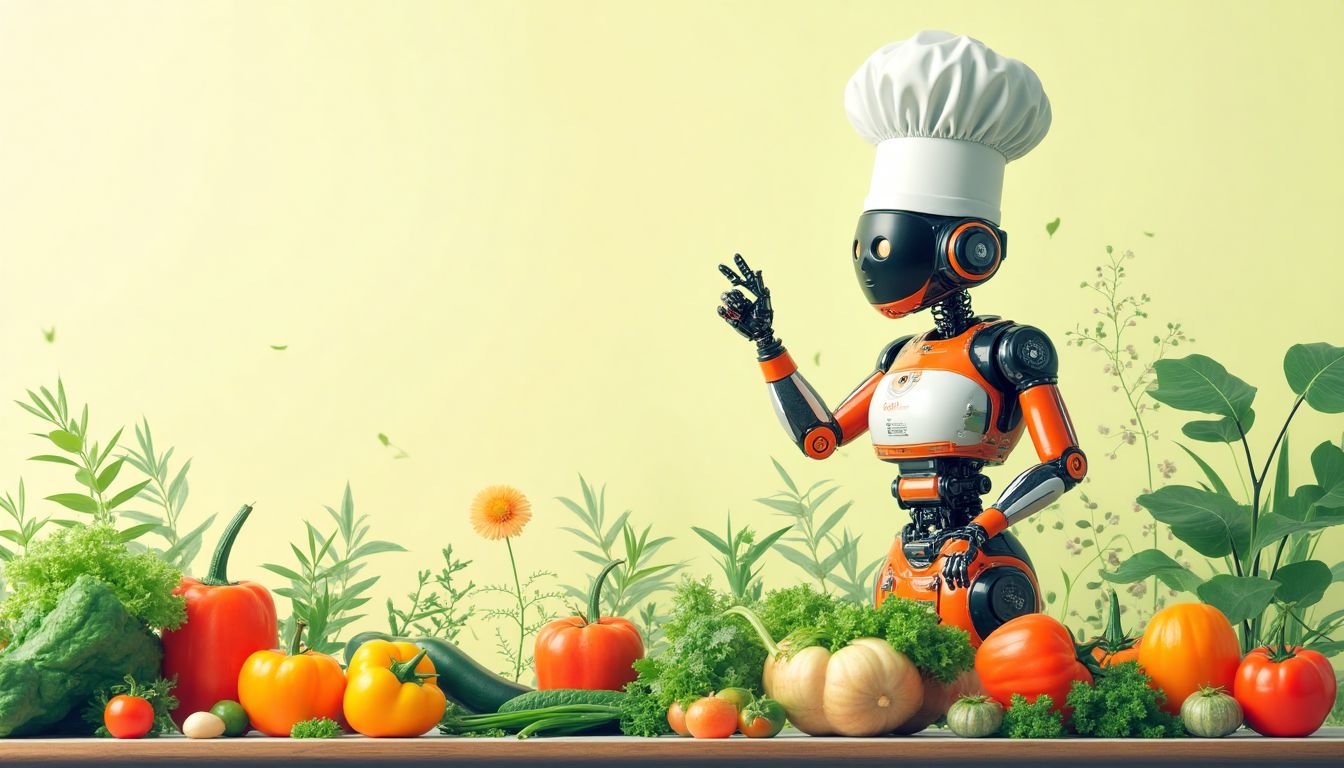
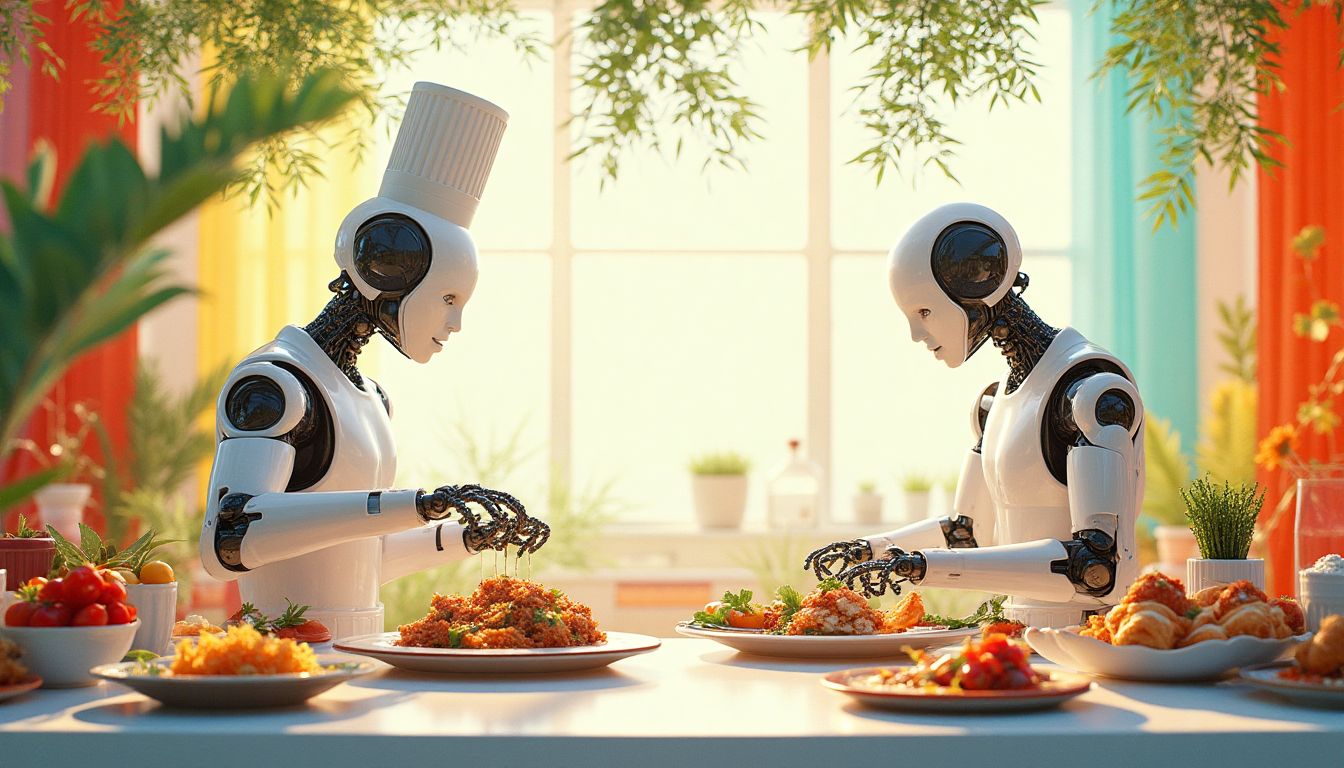
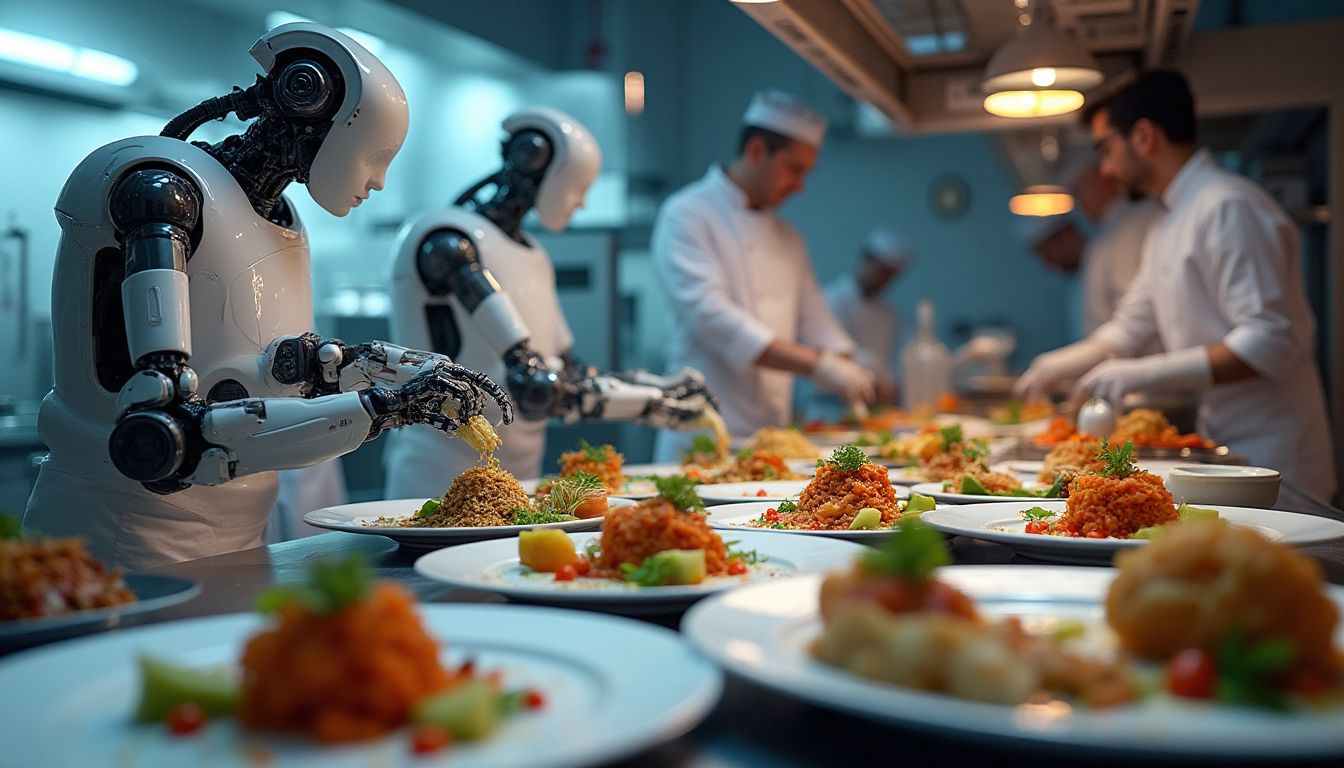
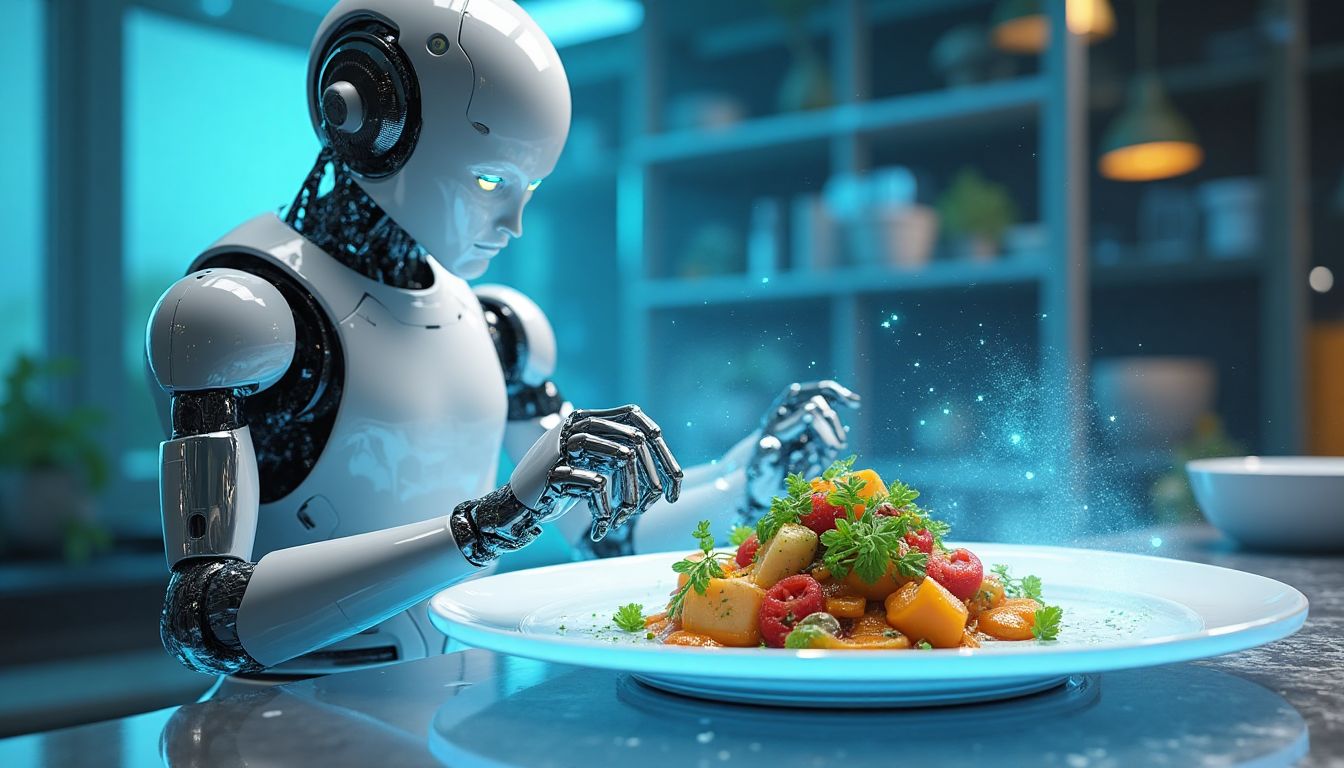

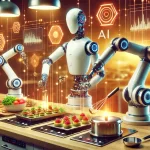





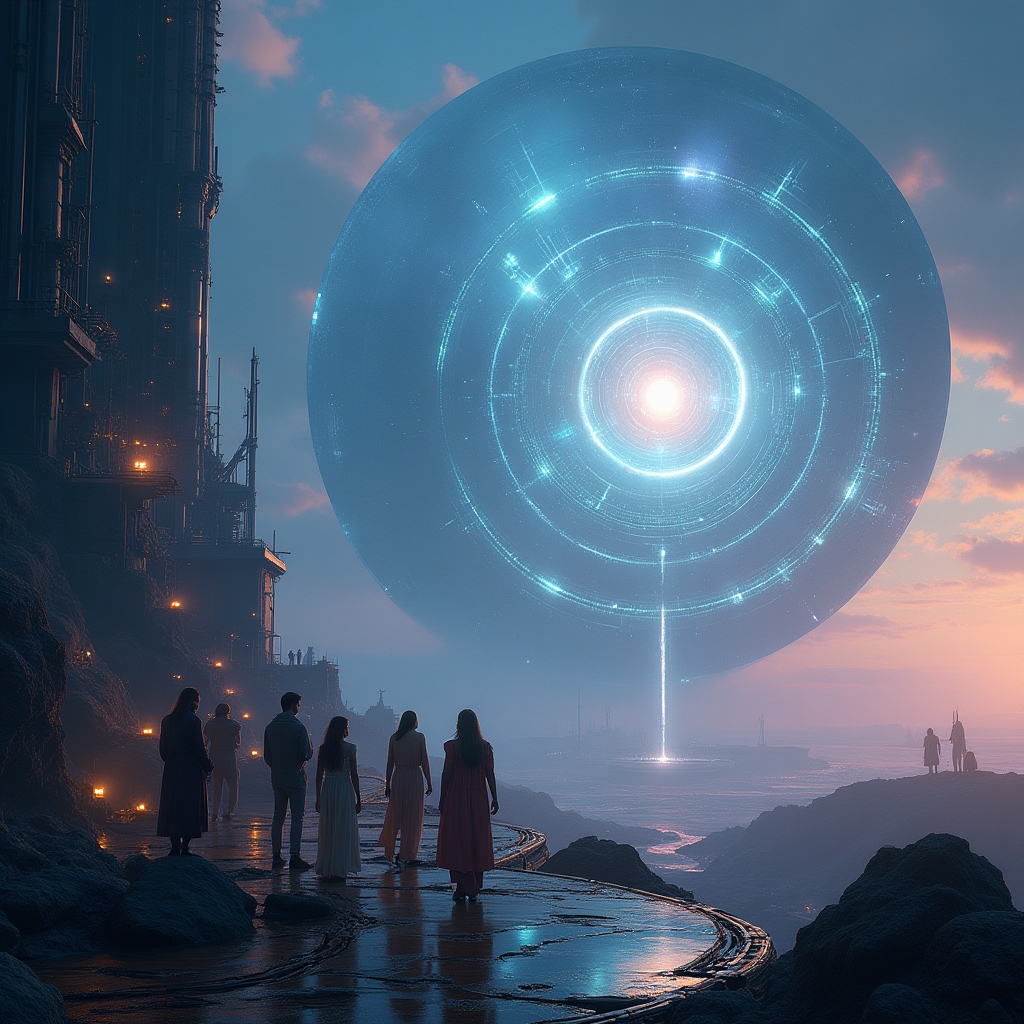
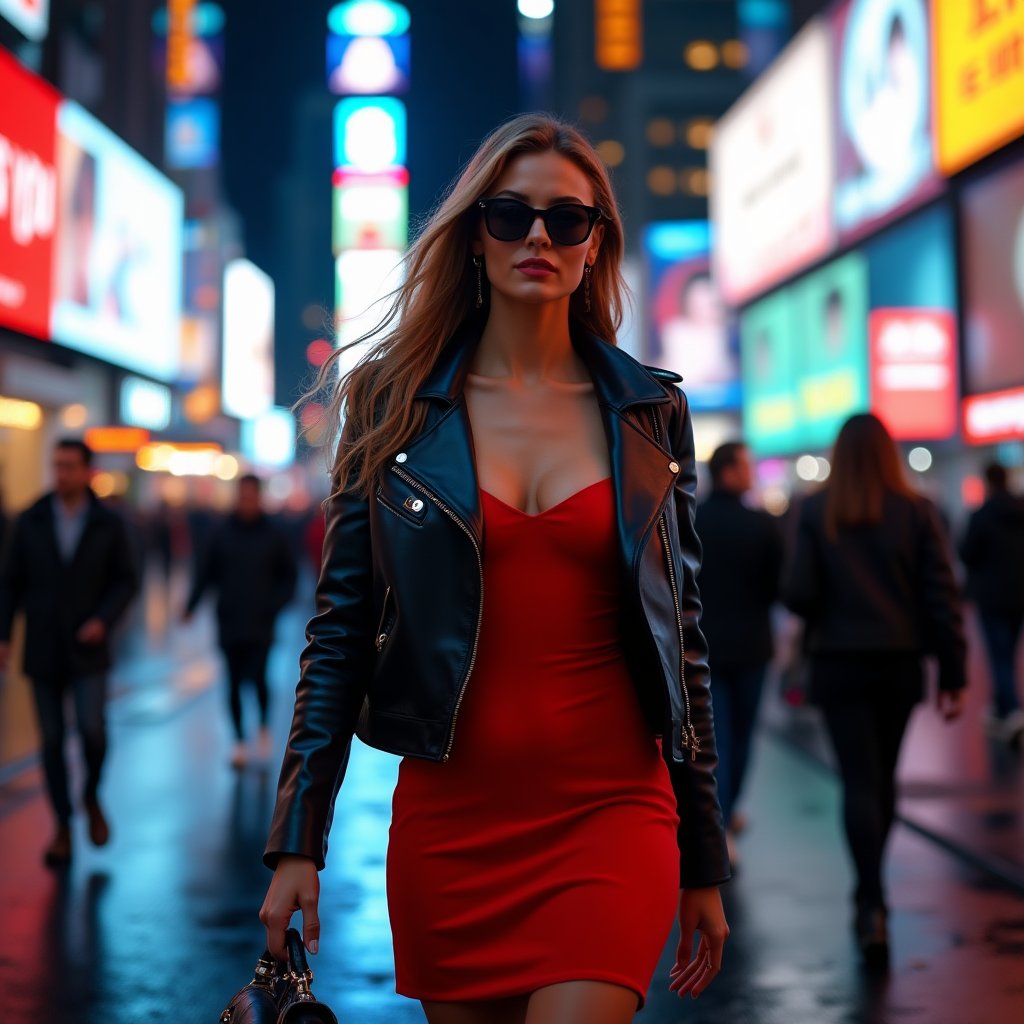















Post Comment
You must be logged in to post a comment.